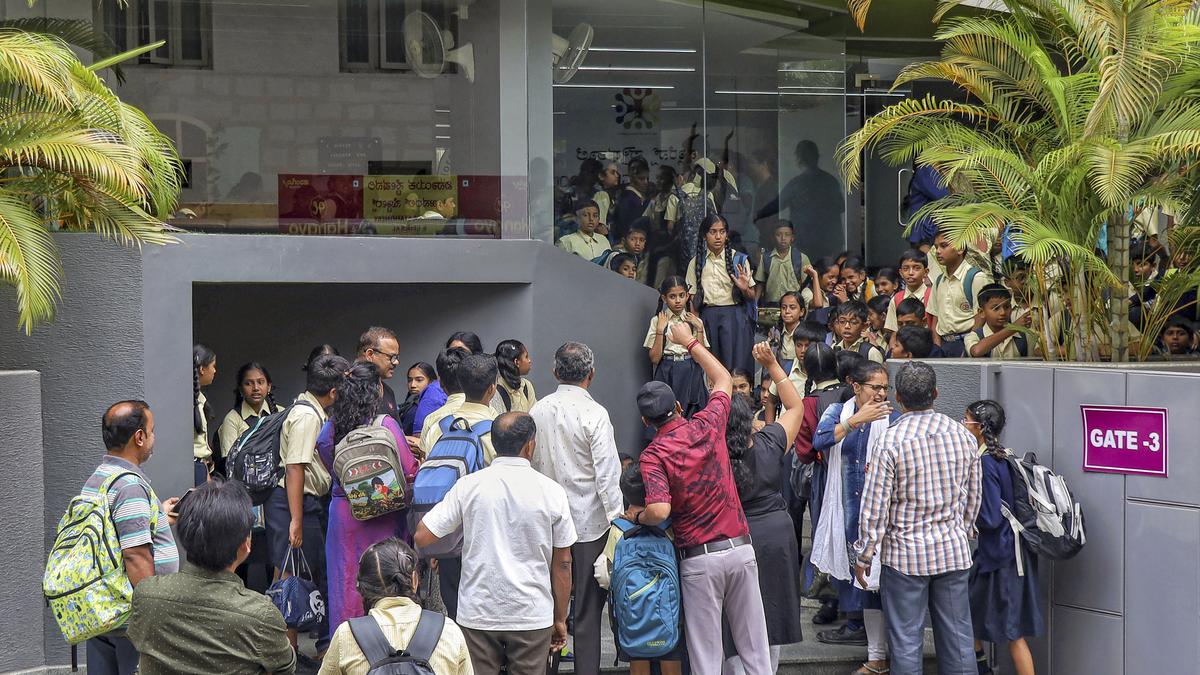
New cyber threats catch India’s IT capital, Bengaluru, unawares Premium
The Hindu
Hoax bomb threat email sent to Bengaluru schools in Dec. 1, 2022, sent panic through the city; police suspect new form of cyber terrorism; schools beef up security, call for State-level cyber security architecture.
“I was in the middle of my yoga class when I received a call from my children’s schools informing me they would be sent home due to a ‘bomb threat’. I immediately rushed to my daughter’s school while my husband went to my son’s school to get them home. Later, we learnt that the threats were a hoax, but when I received that call, panic set in within a second,” said Gowri Raj, a resident of Yelahanka, about 20 kilometres from the city centre, remembering the events of December 1.
She was not alone. Nearly 70 schools in and around Bengaluru received the same “bomb threat email” from kharijiites@beeble.com on December 1. It threatened to kill “you and your children” and said, “From Buddha to infinity they will fly apart from our explosions”. It even targeted Zionists and signed off with “Allahu Akbar”.
The children had been in school for just an hour or so. Bengaluru, the IT capital of the country, plunged into chaos and was gripped by panic in a matter of minutes. Even parents who hadn’t received intimations from their children’s schools were alerted by rolling television coverage. They rushed there and demanded that they be allowed to take their wards back home.
Schools were milling with police officials and bomb detection and disposal squads while children huddled in playgrounds and other open spaces. The threats turned out to be a hoax. However, over 1 lakh children returned home within hours of that email.
As the city went into a tizzy that Friday morning, there was also a sense of deja vu. On April 8, 2022, over 20 schools received a similar bomb threat email, which also eventually turned out to be a hoax. The December 1 drill was just a repeat of what unfolded last year in more ways than one.
Over a month after Bengaluru schools received the threat last year, schools in Bhopal received similar hoax bomb email threats in May 2022. This time around, the email to Bengaluru schools was preceded by a similar hoax bomb threat email to 51 schools in Kuala Lumpur, Malaysia; to several schools in Jamaica in November; and to several schools in Germany in October. The email to Bengaluru and Kuala Lumpur schools was sent from a Cyprus-based email service provider, Beeble.com.
In the 2022 case, the email was initially traced to Syria, but as more layers of the Virtual Private Network (VPN) were uncovered, the trail finally went cold in Pakistan. “We couldn’t trace the final user who sent the mail from across the border. We gave our inputs to central security agencies and are unaware of further developments,” said an officer involved in that probe.

The Karnataka government has drafted a comprehensive master plan for the integrated development of Kukke Subrahmanya temple, the State’s highest revenue-generating temple managed by the Hindu Religious Institutions and Charitable Endowments Department. The redevelopment initiative is estimated to cost around ₹254 crore and aims to enhance infrastructure and facilities for devotees.












